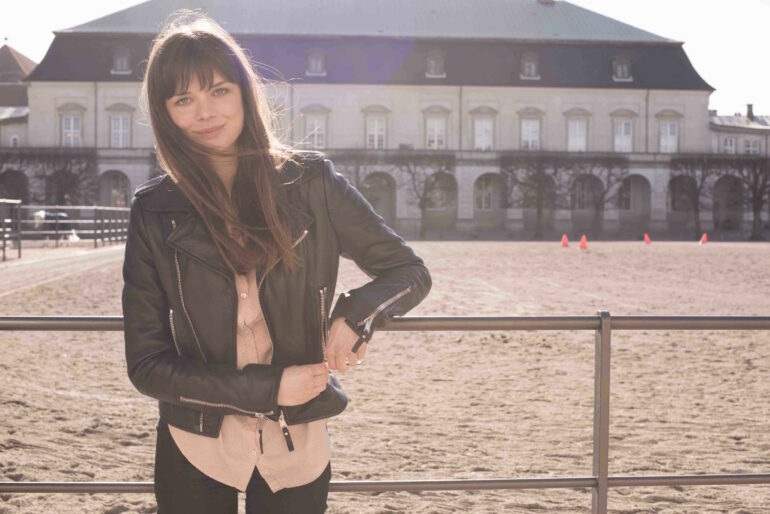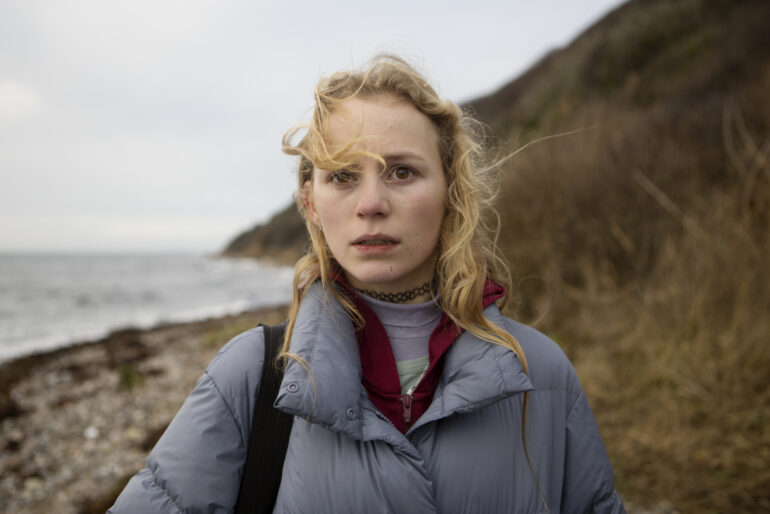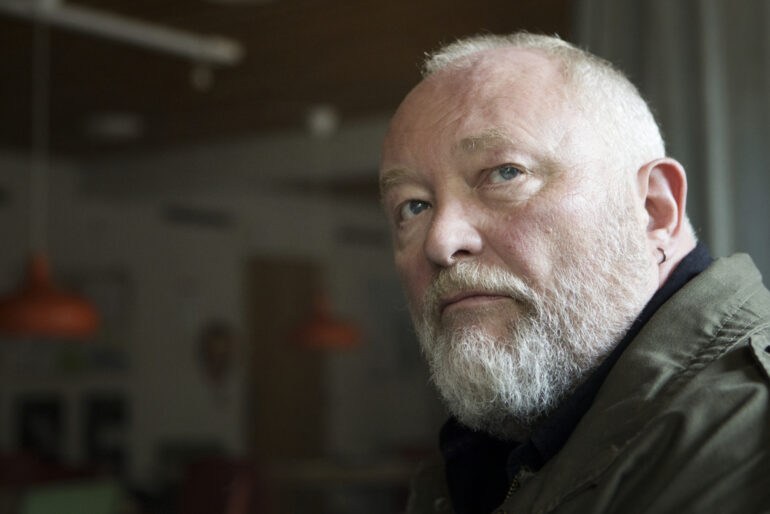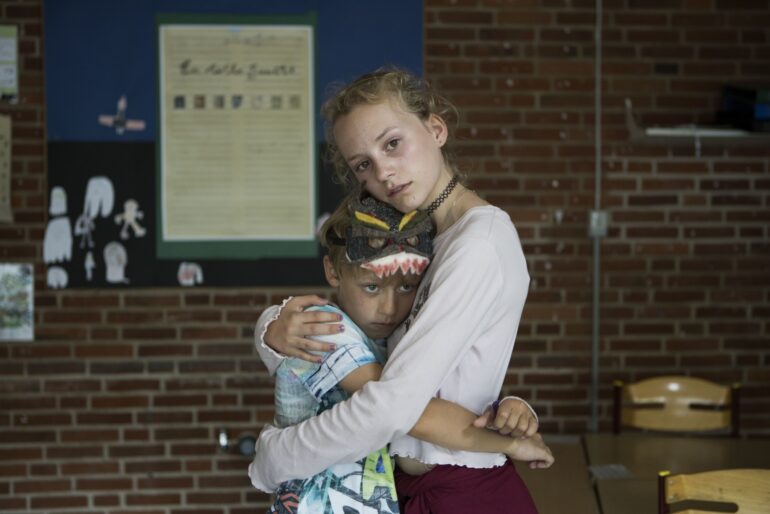WRITTEN BY: Annika Pham
In our first round of interviews with writers competing for Best Nordic Screenplay, we speak to Maja Jul Larsen, creator and head-writer of DR Drama’s Cry Wolf.
The Nordisk Film & TV Fond Prize will be handed out on February 3rd during Göteborg’s TV Drama Vision online awards ceremony.
Maja Jul Larsen (b. 1982) graduated as a screenwriter from the National Film School of Denmark in 2007. She is associated to some of the most internationally acclaimed Danish TV dramas in recent years - Borgen, Follow the Money (Bedrag) and The Legacy (Arvingerne).
The social drama Cry Wolf (Ulven kommer) is her first TV show as creator/head-writer. Co-writers include Nanna Westh, Adam August, Karina Dam and Kim Fupz Aakeson.
When the 14-year old Holly (newcomer Flora Ofelia Hofman Lindahl) writes in her school essay about violence in her home, her family unit is suddenly torn apart, as the zealous social worker Lars (Bjarne Henriksen), in charge of the case, swiftly decides to place the teenage girl and her younger brother Theo (Noah Storm Otto) in a foster home.
The distressed mother Dea (Christine Albeck Børge) and the accused stepfather Simon (Peter Plaugborg) deny the charges, claiming the troubled teenage daughter is lying, and they press charges against the social worker. Doubts over who is actually telling the truth gradually emerge, as Lars’ own judgement is also questioned.
Cry Wolf was produced by Claudia Saginario for DR Drama, with co-financing from SVT, NRK, Yle, RÚV and support among others from Nordisk Film & TV Fond. Pernille Fischer Christensen is attached as concept director, with May el Toukhy, Samanou Sahlstrøm, and Niclas Bendixen serving as episodic directors.
The series was followed by over one million average consolidated viewers after its world premiere on DR October 11 and stirred national debates. It won a Golden Eye in Zurich for Best Series and was sold by DR Sales to several key territories including France, Spain, Germany, Australia.
First of all, what does it mean for you to be nominated for the NFTF Prize?
Maja Jul Larsen: I'm very honoured and happy to be nominated! Being a writer, this prize is extra special for me because it focuses on the screenplay.
When did you start writing, and then turned to screenwriting?
Maja Jul Larsen: I’ve written as long as I can remember. As a teenager, I loved writing short stories. My mum works in publishing so I’ve always had books in my life. But somehow, I always knew I wanted to write for film. I had a teacher in 9th grade who also said that my writing had a filmic quality - then I discovered this is something I could do for a living.
At 21, I was accepted at the Danish Film School. After I graduated in 2007, I did a few shorts and documentaries, and my first TV series at DR was Borgen.
What gives you the most joy when writing a TV drama?
MJL: Getting to the truth of the characters, both in dialogue and reaction is what I find most interesting - how do characters react when put in specific situations.
What stories make you tick? It seems like family relationships are central to your storytelling…
MJL: I’m definitely interested in family dynamics, where we come from, how we’re brought up. I’m a mother myself - and a daughter of course. With Cry Wolf, I loved the idea that I could create an intimate family story that was also about the social care system with social workers behaving almost like detectives, searching the most intimate parts of your family life. And I found that the clash between the system and the family could be a powerful starting point for a story.
This is your first experience as creator and head-writer. How was your experience in the writers’ room?
MJL: It’s been a big task to take on, and therefore quite a steep learning curve. I’ve written quite a few TV scripts over the years; this wasn’t my main concern, except for sticking to deadline, as you shoot while you’re writing, to let the actors and magic on set nurture the material. The biggest challenge was to be a creative leader. I enjoyed the writers’ room, but then I had to communicate my vision to a lot of people, talented in their respective field, but also opinionated. The process of bringing all these voices into one shared vision, while balancing my own control of the material, was perhaps the most daunting.
Pernille Fischer Christensen made her debut as concept director. How was your collaboration?
MJL: I started working with Pernille after I had written a first draft of the script, and we developed the visual style together. She is an incredibly talented director, so much more experienced than I am. I learned a lot from her, such as precision. She is also excellent at building characters and working with actors.
How much time did you spend researching, who did you interview, and what essence came out of this research?
MJL: I spent a full year researching, before starting to write. I didn’t even know the process of these type of cases, for instance, what goes behind the removal by force of children from their parents. At the end, the legal steps and process gave me the structure for the story. I spoke to numerous people - social workers, parents, lawyers - who represent the parents and are quite critical of the system, and a lot of psychologists.
In terms of essence, I realised how difficult it is to be a social worker. In Denmark, we often hear of extreme cases of neglect, where there is no doubt that children should be removed. But in reality, in most social cases, you deal with parents who love their children and try the best they can to raise them, but of course, there can be grey areas. For any social worker, it’s quite difficult to evaluate parents’ ability to care for their children. This is one of the elements that I wanted to showcase in the series.
What I found surprising in the story is how quickly Lars was able to remove the children from their family, without concrete evidence, besides the young girl’s accusation and essay…
MJL: This is also something that struck me in the research: the lack of concrete evidence in some cases. The decisions from the care system is basically based on the social worker’s experience and intuition. I wanted to make this quite clear and this is why Lars moves so fast to remove the children. His colleagues and boss trust his judgment.
Would you say that the show is yet another take on the Nordic noir-with a social care worker as investigator, trying to uncover the truth?
MJL: For me the suspense in the story comes naturally, and stays close to the social worker’s dilemma. During the research, I realised that in many cases, social workers and families have completely different views of the truth.
How much did the actors contribute to their characters and how did you find the young Flora Ofelia Hofman Lindahl who plays Holly?
MJL: I enjoyed working closely with the actors, who contributed a lot to their characters. By allowing them to take ownership of their characters, actors often bring the best and this is ultimately reflected in the final content.
We had a fantastic children’s casting director in Jette Termann, and Pernille brought her own experience. As a 14-year old girl [when filming started] Flora Ofelia brought an incredible depth and maturity to her character.
Can you say a few words about the visual style? The scenes in the lush countryside, create a rich contrast to this otherwise harsh social realistic family drama…
MJL: This is exactly what we wished to convey. In the development phase, we discussed a lot the importance of contrast between the beautiful Danish summer, put up against the harsh reality of the show.
The series averaged over a million viewers on DR. Were you pleased with the reactions from the audience?
MJL: Yes. We were all very pleased. We found that the audience was very engaged in the characters and the central whodunit of the story - there was a lot of debate on social media. Before the show aired there was doubt as to whether a very naturalistic story about social services could draw a large audience, but fortunately it turned out to exceed all expectations.
The story of Holly and her family ends after this season. How do you feel about it? What else are you working on?
MJL: It's very strange and it felt very empty, when we were all done. I have been inside this universe and these characters for so long and now I miss them a bit. Since then, I’ve worked as episodic director of Borgen season 4, created by Adam Price for DR and Netflix.
Now I'm working on a feature film with a young, very promising director. The film deals with power struggles at a workplace. I'm still very much interested in the individual versus the system and the individual in the system, like in Cry Wolf. I'm also starting to develop my next series, but it's too early to say anything concrete about it.



